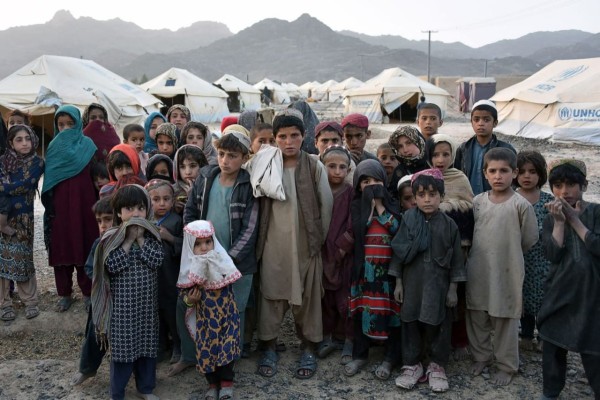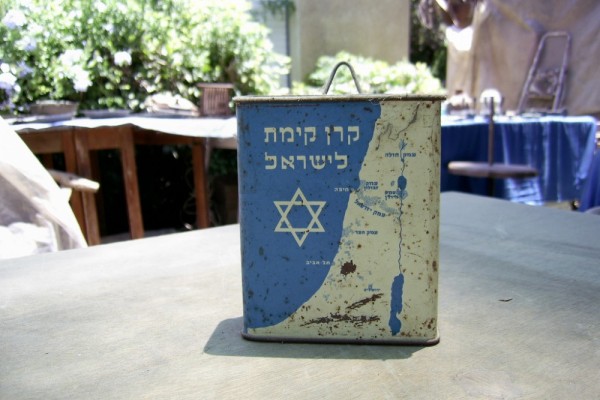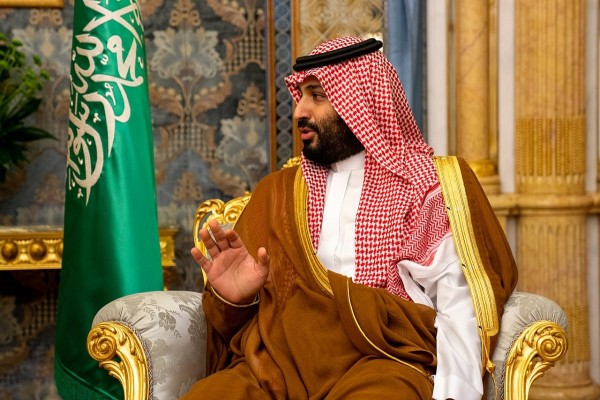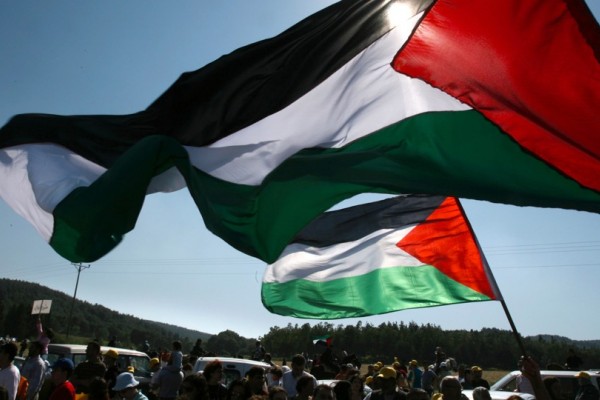Ottawa has never been a benevolent force in Iran
Whatever one may think about the rulers in Tehran, our call for regime change is troubling

Portraits of Iran’s supreme leaders Ayatollah Khamenei and Ayatollah Khomeini. Photo from Flickr.
When it comes to foreign policy, no matter what party is in power, it’s more of the same.
The Liberals came to office promising to back away from the Conservative’s low-level war against Iran. With the prime minister joining a chorus calling for the removal of the Iranian regime, Canada has again ramped up tensions with the Western Asian nation.
Last week Justin Trudeau marched at an Iran solidarity protest, telling a crowd that Canada will “do everything we can to stand against the Iranian regime.” A few days later US President Joe Biden echoed the same position, telling demonstrators in California, “don’t worry, we’re going to free Iran, they’re going to free themselves pretty soon.”
Over the past six weeks Canada has adopted a raft of new sanctions on Iran, targeting hundreds of individuals and entities including media outlets and universities. Ottawa has also banned 10,000 members of the Iranian Revolutionary Guard Corps from Canada.
It goes without saying that, from a feminist, socialist, or liberal standpoint, there are myriad reasons to reproach the Iranian government. But Iran’s neighbour Saudi Arabia is far more repressive towards women and yet it is the second-biggest recipient of Canadian arms sales (after the US). One could argue that Canada’s conflict with Iran is largely driven by Tehran’s resistance to US-Israeli domination of the region—not their human rights record.
When they came to power in 2015, the Liberals dialled down the previous government’s most bombastic rhetoric against Tehran, but they did not restart diplomatic relations, end sanctions, or remove Iran from Canada’s state sponsor of terrorism list (Iran and Syria are the only two countries Canada has included in that register).
Since the Western-backed Shah was overthrown in the Iranian Revolution of 1979 there have been various efforts to isolate the Iranian regime. Former US President Donald Trump pulled out of the Iran nuclear deal in 2018 and proceeded to implement a “maximum pressure” sanctions campaign designed to strangle the Iranian economy in the hope the population would rise up. Due to the lack of diplomatic relations and aggressive US sanctions, Canada has few economic ties with Iran.
In the fall of 2019 Canada seized and sold $28 million worth of Iranian properties in Ottawa and Toronto to compensate individuals in the US whose family members had been killed in a 2002 Hamas bombing in Israel and others who were held hostage by Hezbollah in 1986 and 1991 (Iran arms as supports both groups). The Supreme Court of Canada and the federal government sanctioned the seizure under the 2012 Justice for Victims of Terrorism Act, which lifts immunity for countries labeled “state sponsors of terrorism” to allow individuals to claim their non-diplomatic assets.
Iranian Foreign Ministry Spokesman Seyyed Abbas Mousavi called the seizure “illegal” and in “direct contradiction with international law,” while a spokesperson for Iran’s Guardian Council, Abbasali Kadkhodaei, accused Canada of “economic terrorism.”
At the military level Ottawa has aligned with the US-Saudi-Israeli axis stoking conflict with Iran. One aim of the Canada-Gulf Cooperation Council (GCC) Strategic Dialogue—part of a regional intergovernmental political and economic union—was to isolate Iran. A communiqué sent after the May 2016 Canada-GCC ministerial meeting expressed “serious concerns over Iran’s support for terrorism and its destabilizing activities in the region.”
Similarly, an April 2016 Global Affairs memo authorizing light armoured vehicle export permits to the House of Saud noted, “Canada appreciates Saudi Arabia’s role as a regional leader promoting regional stability, as well as countering the threat posed by Iranian regional expansionism.”
At the November 2019 Dubai International Air Chiefs Conference, the commander of the Royal Canadian Air Force, Al Meinzinger, participated in a panel titled “Watch out Iran!” A year earlier Chief of the Defence Staff Jonathan Vance told a parliamentary committee that Iran was “an interested party and, in some cases, a malign agent in Iraq.”
Hundreds of Canadian troops have been stationed in Iraq partly to counter Iranian influence. The Canadian-led NATO Mission Iraq was designed to weaken the influence of the Iranian-aligned Popular Mobilization Forces. Canada has also had a naval presence in the Persian Gulf. In what is viewed by many experts as a provocative action, Canadian vessels regularly patrol Iran’s coast.
Iranians who oppose their government and want the Islamic Republic to fall should protest. Iranian Canadians or others who support these demonstrations should raise their voices. Indeed, everyone should want to constrain the Iranian authorities’ ability to repress peaceful protests.
But Canadians should not believe Ottawa is a benevolent force in Iran. Canada passively supported the 1953 US-UK coup against Mohammad Mossadegh (Iran’s first popularly elected prime minister), backed the Shah for many years, severed diplomatic relations after the 1979 revolution, and has worked to isolate Iran more recently.
Whatever one may think about the rulers in Tehran, Justin Trudeau’s call for regime change is troubling and represents an imperialist power meddling in the internal affairs of another country, yet again.
Yves Engler has been dubbed “one of the most important voices on the Canadian Left today” (Briarpatch), “in the mould of I.F. Stone” (Globe and Mail), and “part of that rare but growing group of social critics unafraid to confront Canada’s self-satisfied myths” (Quill & Quire). He has published nine books.










